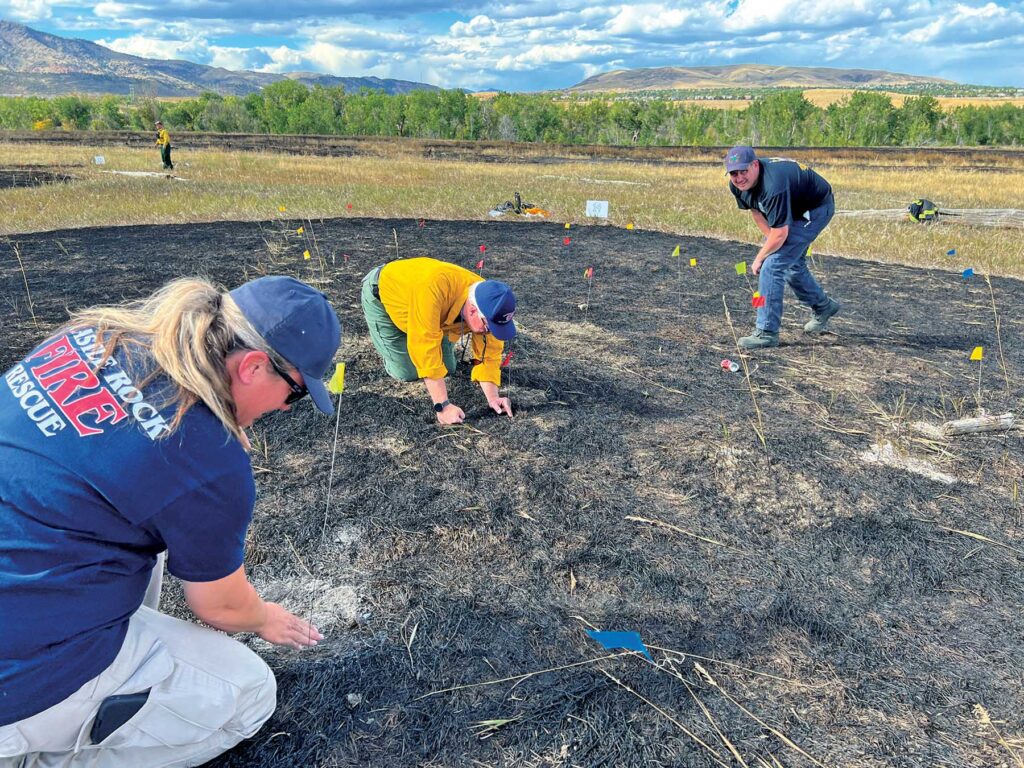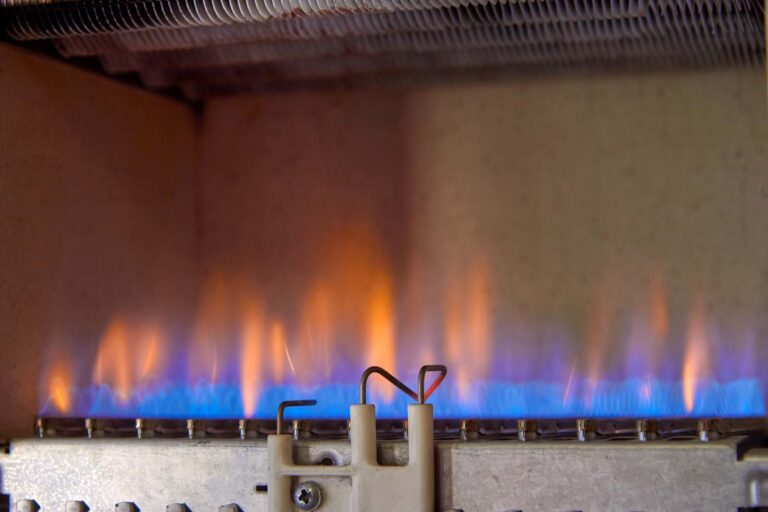Crawling on their hands and knees inside a blackened perimeter, a class of would-be wildland fire investigators is looking for clues to determine the origin and cause of the fire. It’s painstaking work as several groups of students dig through charred vegetation and ash, searching for the smallest piece of evidence that will help them solve the case.
Over the course of a week, 21 students investigated more than a dozen small fires, set deliberately in Bear Creek Lake Park. Each fire was ignited using different methods. In one case, a burning cigarette. In another, a lit match and gasoline. The exercise was the hands-on portion of an intensive class, giving the students a strong foundation as they work toward certification as a Wildland Fire Investigator. West Metro helped sponsor the class, with the goal of getting more full-fledged investigators out in the field.
“What they’re trying to do is to separate the weeds and the leaves and everything else that should normally be in there and look for something that shouldn’t be,” said Matt Araki, West Metro Fire Investigator, and class instructor. “Investigating a wildland fire is much different than investigating a structure fire.”
According to the State Division of Fire Prevention and Control, more than 5,000 wildfires ignite across Colorado each year. Most of the fires are human-caused and often the details of how a fire started and why are unknown. One reason is the lack of certified wildland fire investigators. Another reason is the sheer scale of the potential crime scene.
“You can look around and see how much open space we have to deal with,” said Araki. “I’ve investigated fires along roadsides where the possibility for an ignition point stretches a quarter mile, a half mile, even a mile, maybe longer.”
For investigators, something as small as a blade of grass could hold a treasure trove of information. On one side, the grass is brown, on the other, it’s still green. That shows the direction the fire was moving and following that trail back to the origin point is where they will likely find the cause. Then comes the work to find a suspect.
“It’s not unusual for a suspect to be responsible for more than one fire,” said Araki. “And often, they start with small fires. The more investigators we have, the better chance there is to catch that suspect early before they can set bigger fires that can threaten homes and property.”
Fire investigation – whether its wildland or structural – involves a complex and methodical process. While any fire can be caused by a variety of factors, it’s vitally important for investigators to have the knowledge, skills and abilities to accurately determine the cause and origin.
Ronda Scholting is West Metro Fire Rescue’s Public Information Officer.






